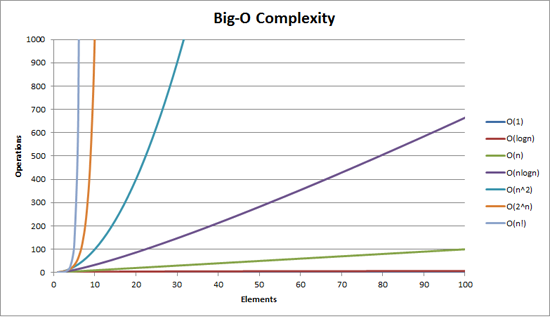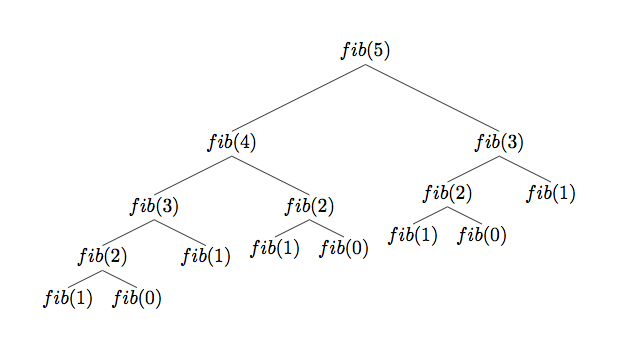Dynamic Programming
Knapsack Problem
(背包問題)
How to be a smart thief?



Carrying capacity is limited
Of course, the thief will try his best to take out the maximum value in his backpack
A thief, An apartment (no one is there)
| radio | laptop | guitar |
|---|---|---|
| $30,000 | $20,000 | $15,000 |
| 4kg | 3kg | 1kg |




Capacity: 4 kg
Grokking Algorithms: An illustrated guide for programmers and other curious people. Ch9 p161



A simple way...
Put 📻 into 📦
or
Don't put 📻 into 📦
Put 💻 into 📦
or
Don't put 💻 into 📦
Put 🎸 into 📦
or
Don't put 🎸 into 📦
Grokking Algorithms: An illustrated guide for programmers and other curious people. Ch9 p161
A simple way...
Put 📻 into 📦
or
Don't put 📻 into 📦
Put 💻 into 📦
or
Don't put 💻 into 📦
Put 🎸 into 📦
or
Don't put 🎸 into 📦
2 x 2 x 2 = 8
| Your bag | empty = $0 | 📻 = $30,000 |
| 💻 = $20,000 | 🎸 = $15,000 | 📻 💻 = $50,000 |
| 💻 🎸 = $35,000 | 📻 🎸 = $45,000 | 💻 📻 🎸 = $65,000 |
If there were one more extra item ...
the thief need to calculate of possiblities
If there were 10 items, the thief would calculate of possibilities, which is equal to 1,024
If there were one more extra item ...
stackoverflow : if n^3 has a fast rate of ...

Besides maximum value, the thief hasn't considered the weight yet, coz the bag has a capacity limit.
| Your bag | empty = $0 | 📻 = $30,000 |
| 💻 = $20,000 | 🎸 = $15,000 | 📻 💻 = $50,000 |
| 💻 🎸 = $35,000 | 📻 🎸 = $45,000 | 💻 📻 🎸 = $65,000 |
Besides maximum value, the thief hasn't considered the weight yet, coz the bag has a capacity limit.
x
x
x
| Your bag capacity : 4 kg |
empty = $0 (v) waste to check |
📻 = $30,000 4kg (v) |
| 💻 = $20,000 3kg (v) |
🎸 = $15,000 1kg (v) |
📻 💻 = $50,000 |
| 💻 🎸 = $35,000 4kg (v) |
📻 🎸 = $45,000 |
💻 📻 🎸 = $65,000 |
How to be smart?
Let's take out your notebook

Step 1
1. Divide the backpack into a smaller backpack.
If we can solve the max value of 1 kg and 3 kg bag, then we can solve the max value of 4 kg bag.

Capacity: 4 kg

Capacity: 1 kg

Capacity: 3 kg
Step 2
2. Take a note of the max value on every small bags
Then we can store it for future usage, that is to say, we can make a comparison of the max value on each item.

| 📦capacity: 1 kg | 📦capacity: 2 kg | 📦capacity: 3 kg | 📦capacity: 4 kg | |
|
|
||||
|
|
||||
|
|
Your notebook
1. Divide the backpack into a smaller backpack.
2. Calculate the maximum value of each backpack.
3. Record the maximum value on the table
| 📦capacity: 1 kg | 📦capacity: 2 kg | 📦capacity: 3 kg | 📦capacity: 4 kg | |
| 🎸 1kg |
||||
|
|
||||
|
|
Your notebook
$15000
🎸
$15000
🎸
$15000
🎸
$15000
🎸
| 📻 | 💻 | 🎸 |
|---|---|---|
| $30,000 | $20,000 | $15,000 |
| 4kg | 3kg | 1kg |
| 📦capacity: 1 kg | 📦capacity: 2 kg | 📦capacity: 3 kg | 📦capacity: 4 kg | |
| 🎸 1kg |
$15000 🎸 |
$15000 🎸 |
$15000 🎸 |
$15000 🎸 |
| 📻 4kg |
||||
|
|
Your notebook
| 📻 | 💻 | 🎸 |
|---|---|---|
| $30,000 | $20,000 | $15,000 |
| 4kg | 3kg | 1kg |
$15000
🎸
$15000
🎸
$15000
🎸
$30000
📻
📻 or 👆
| 📦capacity: 1 kg | 📦capacity: 2 kg | 📦capacity: 3 kg | 📦capacity: 4 kg | |
| 🎸 1kg |
$15000 🎸 |
$15000 🎸 |
$15000 🎸 |
$15000 🎸 |
| 📻 4kg |
$15000 🎸 |
$15000 🎸 |
$15000 🎸 |
$30000 📻 |
| 💻 3kg |
Your notebook
| 📻 | 💻 | 🎸 |
|---|---|---|
| $30,000 | $20,000 | $15,000 |
| 4kg | 3kg | 1kg |
$15000
🎸
$15000
🎸
💻 or 👆
$20000
💻
💻 + 1 or 👆
$35000
💻 🎸
What if the thief saw an iPhone before he left?
📱 $20,000 /
1kg

| 📦capacity: 1 kg | 📦capacity: 2 kg | 📦capacity: 3 kg | 📦capacity: 4 kg | |
| 🎸 1kg |
$15000 🎸 |
$15000 🎸 |
$15000 🎸 |
$15000 🎸 |
| 📻 4kg |
$15000 🎸 |
$15000 🎸 |
$15000 🎸 |
$30000 📻 |
| 💻 3kg |
$15000 🎸 |
$15000 🎸 |
$20000 💻 |
$35000 💻 🎸 |
| 📱 1kg |
Your notebook
| 📻 | 💻 | 🎸 | 📱 |
|---|---|---|---|
| $30,000 | $20,000 | $15,000 | $20,000 |
| 4kg | 3kg | 1kg | 1kg |
📱 or 👆
$20000
📱
📱+ 1 or 👆
📱+ 2 or 👆
📱+ 3 or 👆
$35000
📱🎸
$35000
📱🎸
$40000
📱 💻
We made it!
| 📦capacity: 1 kg | 📦capacity: 2 kg | 📦capacity: 3 kg | 📦capacity: 4 kg | |
| 🎸 1kg |
$15000 🎸 |
$15000 🎸 |
$15000 🎸 |
$15000 🎸 |
| 📻 4kg |
$15000 🎸 |
$15000 🎸 |
$15000 🎸 |
$30000 📻 |
| 💻 3kg |
$15000 🎸 |
$15000 🎸 |
$20000 💻 |
$35000 💻 🎸 |
| 📱 1kg |
$20000 📱 |
$35000 📱🎸 |
$35000 📱🎸 |
$40000 📱💻 |
We made it!
| small bag1 capacity |
small bag2 capacity |
... | bag W capacity |
|
| item 1 weight |
||||
| item 2 weight |
||||
| ... |
||||
| item n weight |
We made it!
Our calculation time was , but what about now?
is the amount of items
The calculation time is now.
is the amount of all kinds of backpack
Complexity?
| Time | Space | |
| Exhaustive method | ||
| Dynamic programming | |
Complexity?
stackoverflow : if n^3 has a fast rate of ...

-
Divide a problem into sub-problems.
-
Solve each sub-problems and store it for future usage
Dynamic Programming
Lovely Rabbits








































5
0
1
4
2
3
| month | pair |
|---|---|
| 0 | 1 |
| 1 | 1 |
| 2 | 2 |
| 3 | 3 |
| 4 | 5 |
| 5 | 8 |
Find out the regular pattern
- The number of rabbits will be the same as the previous month at least.
- It takes 2 months to give birth since the rabbits are born.
- The life of rabbits is eternal.
- Every rabbit can only give birth to male and female twins every time.
Assume
Clue
Fibonacci Problem
for n > 1,
function fibonacci(num) {
if (num <= 1) return 1;
return fibonacci(num - 1) + fibonacci(num - 2);
}- The number of rabbits will be the same as the previous month at least.
- It takes 2 months to give birth since the rabbits are born.
Clue
Fibonacci Problem




Our calculation time is almost about .
How to be smart?
Let's take out your notebook

How to be smart?
1. Can we divide the program into sub-programs?
2. Can we store something first and use it later?
| month | pair |
|---|---|
| 0 | |
| 1 | |
| 2 | |
| 3 | |
| 4 | |
| 5 |
Wrote down the result in your notebook
1
1
2
3
5
8
| month | pair |
|---|---|
| 0 | 1 |
| 1 | 1 |
| 2 | 2 |
| 3 | 3 |
| 4 | 5 |
| 5 | 8 |
Wrote down the result in your notebook
| month | pair |
|---|---|
| 0 | 1 |
| 1 | 1 |
| 2 | 2 |
| 3 | 3 |
| 4 | 5 |
| 5 | 8 |
| 6 | |
| 7 |
Can I know ?
13
21
Complexity?
| Time | Space | |
| Exhaustive method | ||
| Dynamic programming | |
almost
Complexity?
stackoverflow : if n^3 has a fast rate of ...

Exercise
What if there were a watch?
⌚
$17,000 /
0.5 kg

| 📦: 1 |
📦: 2 |
📦: 3 |
📦: 4 |
|
| 🎸 | ||||
| 📻 | ||||
| 💻 | ||||
| 📱 |
| 📦: 0.5 |
📦: 1 |
📦: 1.5 | 📦: 2 | 📦: 2.5 | 📦: 3 | 📦: 3.5 | 📦: 4 | |
| 🎸 | ||||||||
| 📻 | ||||||||
| 💻 | ||||||||
| 📱 | ||||||||
| ⌚ |
Can he steal some of rice if there were a bag of rice?


$40,000 /
5 kg
4 kg
Fibonacci Problem
function fibonacci(num) {
if (num <= 1) return 1;
return fibonacci(num - 1) + fibonacci(num - 2);
}Implement in Dynamic Programming way
-
Divide a problem into sub-problems.
-
Each table cell is your sub-problems.
-
Each value in a cell is what you try to optimize.
-
Think about how to divide your problem into sub-problems
Recap
Reference
- Grokking Algorithms: An illustrated guide for programmers and other curious people (Traditional Chinese Edition)
- Demystifying Dynamic Programming
- JavaScript Algorithms and Data Structures Masterclass
- Dynamic Programming - Learn to Solve Algorithmic Problems & Coding Challenges
- Fibonacci sequence algorithm in Javascript
Illustration & Material












